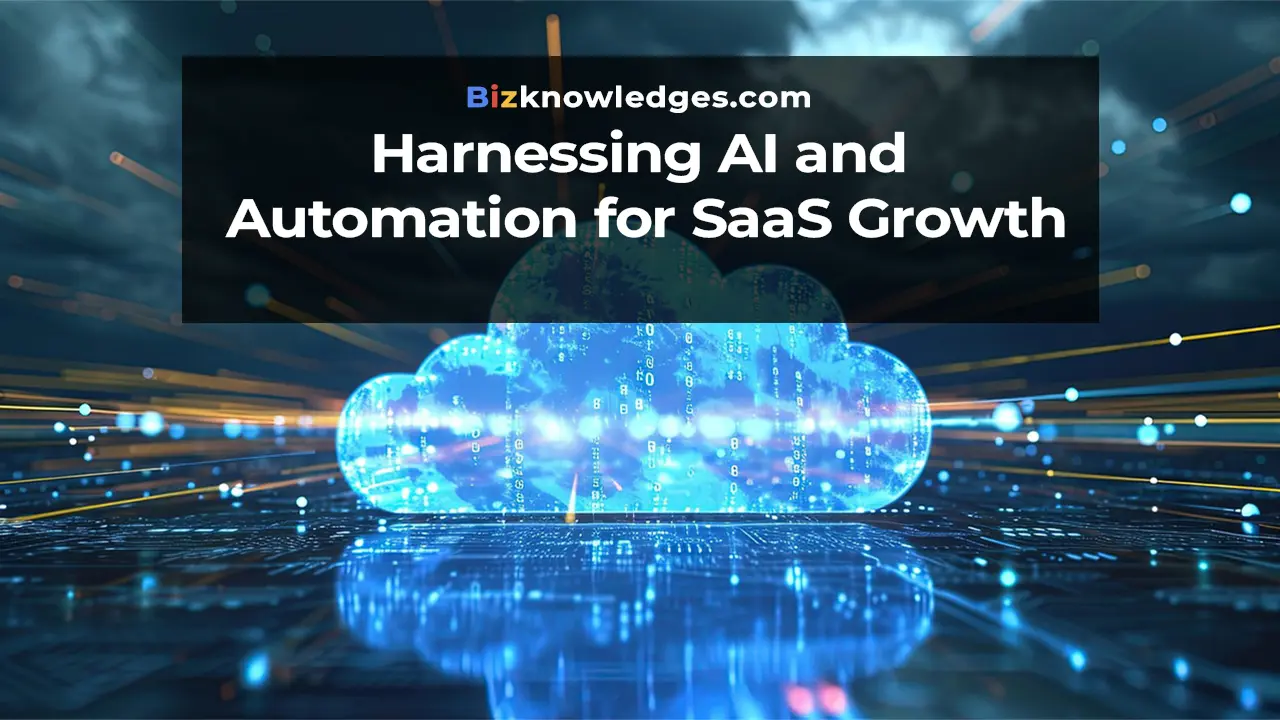Harnessing AI and Automation for SaaS Growth

In the rapidly evolving landscape of Software as a Service (SaaS), AI and automation stands out as an indispensable tool that drives scalability, efficiency, and cost savings. By automating repetitive tasks such as invoicing or customer onboarding, businesses can redirect their resources towards innovation and product development. This not only enhances operational performance but also ensures smoother scaling without increasing manpower.
The integration of Artificial Intelligence (AI) further amplifies the capabilities of SaaS platforms by enabling data-driven insights and personalized user experiences. AI’s ability to analyze vast amounts of data helps in identifying trends, predicting outcomes, and providing actionable recommendations that can significantly improve decision-making processes within businesses. Together with automation, these technologies create a powerful synergy where routine tasks are streamlined while being made smarter through real-time adjustments based on data analysis.
Transforming Logistics Through Smart Automation
In logistics-focused SaaS platforms, the combination of AI and automation offers numerous opportunities for optimization. For instance, route optimization algorithms can analyze traffic patterns to identify efficient delivery routes, which automation then executes seamlessly. Similarly, demand forecasting powered by AI allows inventory levels to be adjusted automatically based on real-time data analysis.
Supply chain management is another area where these technologies excel. By integrating AI and automation into procurement processes and shipment tracking, businesses can streamline their entire supply chain operations with minimal manual intervention. This results in a more agile and cost-effective logistics system that meets customer demands precisely while reducing operational inefficiencies.
Enhancing SaaS Potential Across Industries
The benefits of AI-driven automation extend beyond just logistics; they are equally transformative across various industries such as healthcare, finance, human resources (HR), and even online businesses. In health-based SaaS platforms, for example, patient data management can be automated with the help of AI to ensure accurate diagnoses and personalized treatment plans.
Financial operations also see significant improvements through automation in tasks like bookkeeping and fraud detection. HR processes become more efficient as recruitment is streamlined by automating resume screening and scheduling interviews based on predefined criteria. Moreover, customer service experiences are enhanced using chatbots that handle inquiries 24/7 while escalating complex issues to human agents.
To fully leverage the SaaS potential with AI, businesses should consider implementing tools like N8N for custom automation workflows or Google Cloud AI services for machine learning and natural language processing capabilities. These technologies not only automate routine tasks but also make them smarter by integrating real-time data analysis into decision-making processes.
AI Power in SaaS Business Cases

In conclusion, harnessing the power of AI and automation is crucial for SaaS businesses aiming to scale efficiently while maintaining high operational standards. By automating repetitive tasks and leveraging AI-driven insights, companies can focus on innovation and customer-centric improvements that drive sustainable growth. Whether it’s optimizing logistics operations or enhancing financial processes, these technologies offer a robust toolkit to transform business models.
For those looking to understand how they can integrate AI into their SaaS platforms effectively, exploring the concept of “business model canvas” could provide valuable insights. Additionally, learning about the broader implications and potential benefits through resources on “SaaS potential with AI” would be beneficial for strategic planning and implementation.
The Future Of AI In SaaS
Harnessing AI and automation is becoming increasingly significant in the SaaS industry, enhancing various aspects of business operations and customer interactions. This synergy of AI with automation not only streamlines processes but also introduces advanced capabilities like predictive analytics and personalized services, thereby transforming traditional SaaS platforms into more efficient, proactive, and user-centric solutions.
Conclusion
The article highlights the crucial role of AI and automation in enhancing the scalability and efficiency of SaaS businesses. By streamlining repetitive tasks and integrating data-driven AI technologies, companies can optimize operations and improve decision-making processes across various industries, from logistics to healthcare. This strategic application of technology not only boosts operational efficiency but also fosters innovation and customer-focused advancements.
